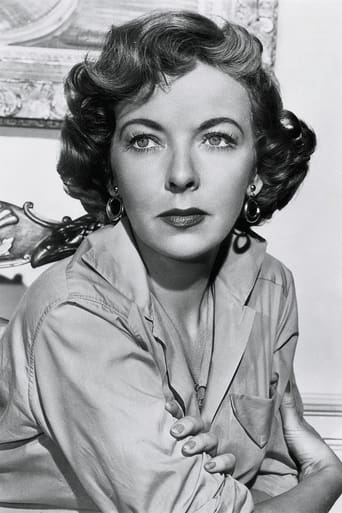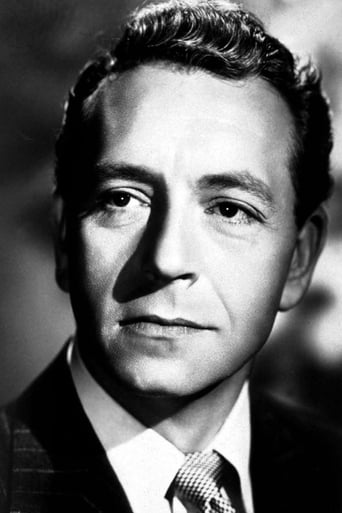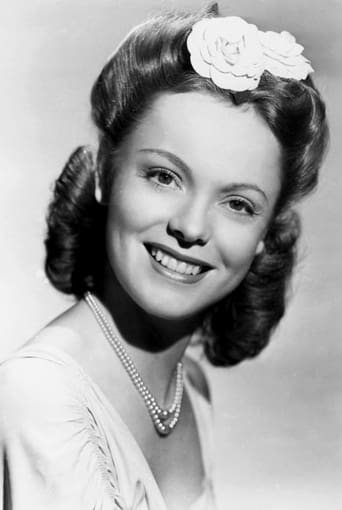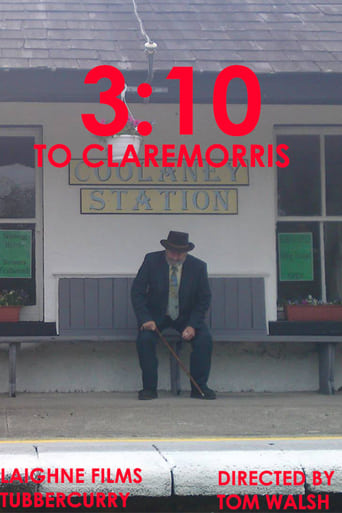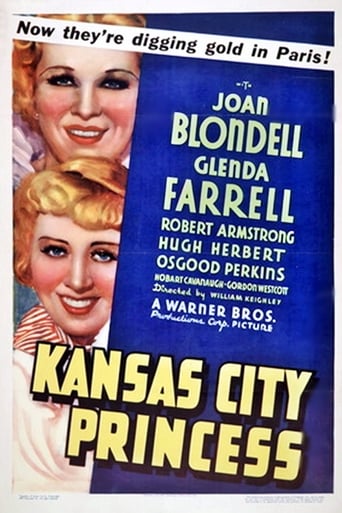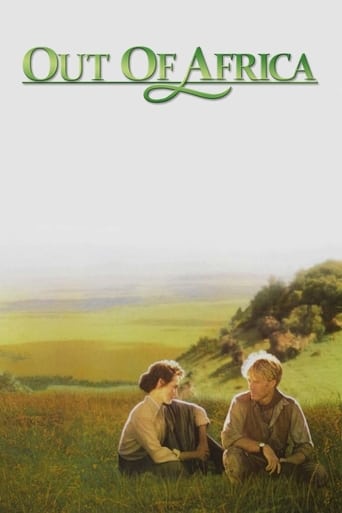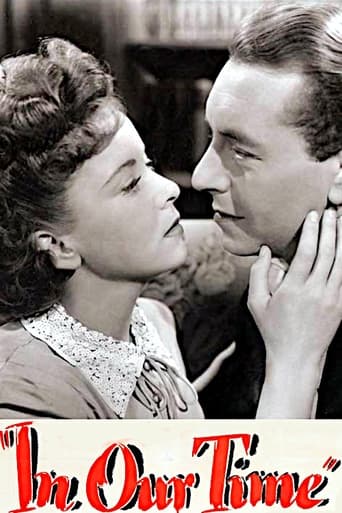
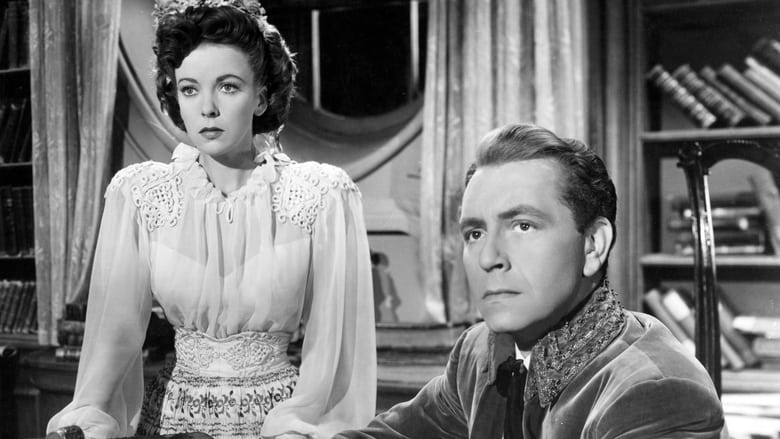
In Our Time (1944)
It is early 1939 in Poland when Mrs. Bromley and Jennifer come to buy antiques for her business in London. Jennifer meets Count Stephen and they wine, dine and see the sights though out the city. He wishes to marry, but his family is against plain Jennifer. When she tries to leave, he catches her at the train station and they are married. To be self sufficient, they modernize the family farm with tractors and increase production, but then Germany starts the war.
Watch Trailer
Cast
Similar titles


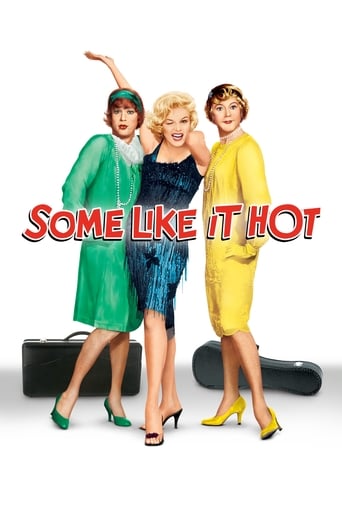

Reviews
Excellent but underrated film
Crappy film
This is one of the few movies I've ever seen where the whole audience broke into spontaneous, loud applause a third of the way in.
It is neither dumb nor smart enough to be fun, and spends way too much time with its boring human characters.
Jennifer (Ida Lupino) visits Poland with her boss Mrs Bromley (Mary Boland) to buy antiques. She meets Stefan (Paul Henreid) and they fall in love. We follow the story of how this couple go against Stefan's family values as Poland is on the verge of being invaded by Germany. The war begins and each member of Stefan's family must choose whether to stay and fight or escape to safety.This film starts well with Mrs Bromley very funny as she eats chocolates on a train while Jennifer reads to her about Poland. However, the pace seems to slow down with the arrival of Stefan. I sat through each sequence thinking "right, things are going to pick up now" but they never did. The film just crawls along at a drawn-out pace.The cast are all good and Ida Lupino, Victor Francen who plays the wealthy Count, and Alla Nazimova who plays Stefan's mother all provide scenes with genuine dramatic dialogue. The film is a bit preachy and there just aren't many memorable scenes. The only one that stands out for me is at the harvest party when the bombing starts.Even though I have given this film 5/10, my girlfriend rated it as a 7/10. So my conclusion is that you will enjoy this film more if you are a girl......but listen guys, don't go having an expensive operation just for this....
"In Our Time" from 1944 is a propaganda movie set in Poland starring Paul Henried, Ida Lupino, Nazimova, Nancy Coleman, Victor Francen, and Michael Chekhov, and directed by Vincent Sherman.The script, by Ellis St. Joseph and Howard Koch, is reminiscent in some ways to Rebecca and to Gone with the Wind. Jennifer Whittridge (Lupino) is traveling as a secretary to an antique dealer (Mary Boland) in Poland in 1939 when she meets Count Stephen Orvid (Henried). Henried mistakenly believes Jennifer is good for a quick fling, but he realizes soon enough that's not the case. As Jennifer's trip draws to an end, he proposes, and she accepts though his aristocratic family objects. In order to live independently of his uncle (Victor Franzen), Stephen and Jenny employ modern techniques on the farm and incentivize the peasants by giving them a share of the harvest. Then the war comes to Poland.There are good performances by everyone involved. The film moves slowly but one feels the tension of the approaching war. Some of that tension may be due to the viewer knowing that Poland was in for one miserable time not only during the war, but after under Communism.Paul Henried had his real heyday during WWII since the usual leading men were off fighting the war; Ida Lupino, since she was at Warners, always wound up with Bette Davis' handoffs and later distinguished herself on television and as a director. She and Henried make you care about the characters.It's odd to have a film set in Poland, odder still that Poland's radio announcements were in English. Eastern Europe's WWII story is a tragic one, and it wasn't shown in film all that often.
IDA LUPINO is a British young woman visiting Poland and acting as a companion to MARY BOLAND, a wealthy woman fond of collecting antiques. At an antique shop, Ida runs into PAUL HENRIED, who thinks she works at the store. They meet and fall in love, and Ida discovers that he's a Polish count. He insists on showing her around Warsaw and in a few short days they fall in love and, although Ida has misgivings when she meets his family and fails to pass inspection, they do marry.Then the Nazi invasion of Poland looms over the story for the second half of the film. The script is articulate and literate, dealing as it does with the aristocracy for the most part, but terribly slow-moving and Vincent Sherman's direction fails to give the script the pace it needs to maintain interest.Ida plays a more rational and less intense creature than she usually does and gives an assured performance as the British girl who must adjust to her new husband and his family. NANCY COLEMAN is his regal, spoiled sister, NAZIMOVA is his party-loving mother, and VICTOR FRANCEN is Henried's wealthy uncle, a Count who keeps the family financially solvent.But Poland is unable to avoid falling into Hitler's clutches and the story veers into more serious territory with the advent of war and the decision that Henried must make with regard to Poland under Nazi rule.Summing up: A bit tedious at times, but interesting for the performances of Lupino, Henried, Coleman, Francen, Nazimova, Mary Boland and Franz Waxman's melodramatic score.
The main reason why I was interested in watching this was how a Hollywood movie made in 1944 would handle the invasion of Poland. Afterall the Soviets were now our Allie. Well Hollywood took the easy way out and didn't mention the Nazi-Soviet non aggression pact and the co invasion of Poland by the USSR, it was all a Nazi show. I only watched the first few minutes and than woke up (it was showing at 3-4 am) right at the start of the invasion on what looked to be Ida's and Henried's wedding night. It's a good thing Henried's character didn't get captured by the Soviets as I don't think they took a kind view of aristocrat Polish officers judging by the mass graves that were discovered full of them. Real sappy war propaganda fluff.
